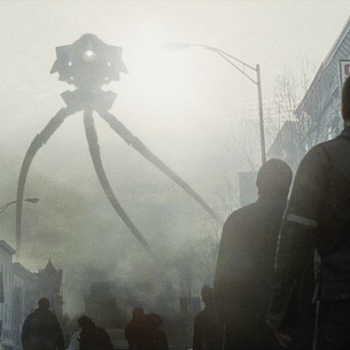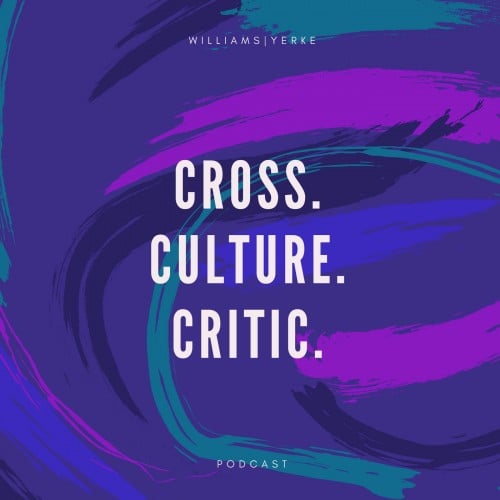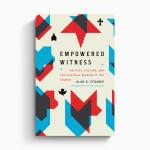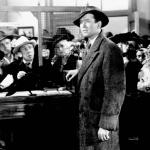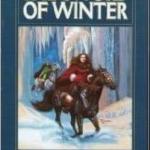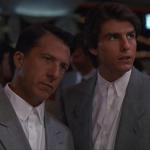We’re continuing the “Getting To Know You” portion of this blog. Two weeks ago, I wrote about my favorite movies. Last week, I tackled my favorite TV shows. This week, I’m doing something different. I want to talk about critics.
Part of the reason I want to talk about this is because I believe that any good writer improves through reading better writers, no matter the subject. Part of it is that I feel that knowing the critics who influence me will help you understand more about where I’m coming from. And part of it is that I know there’s a copy of A.O. Scott’s book “Better Living Through Criticism” that just arrived today and my thoughts are on the topic.
But mostly, it’s because I love film criticism. I minored in film studies in college, but reading the work of critics has been my true film education, one that continues to this day. I love the relatively recent influx of online film critics because of the community it creates with other film lovers. Most of my friends and family prefer to leave the movie in the theater; they don’t understand the enjoyment I get in talking about a film, its themes, its shots and other merits over and over. It’s how I learn to love films and see them with fresh eyes. Just last week, a conversation with a fellow critic about “A Serious Man” prompted me to re-watch it, and I learned I’d been reading it wrong for several years. Even if I sometimes get the feeling that the online critical community is writing mostly for each other, I’m okay with that. I’m part of that audience, and I’m having a great time.
So the following are the five critics or writing communities I keep up with and who I trust the most. I’ve limited it to reviewers who are currently active, doing their work via writing, podcasts or other avenues. Were I to start mentioning the effect that, say, Roger Ebert had on me, we’d be here all week. I’ve also limited it solely to film critics. There is some great work going on in television criticism these days, particularly with Alan Sepinwall and Matthew Zoller Seitz. But I wanted to keep this list short(ish).
These are the critics whose work inspires me, has shaped my view of film, and hopefully are making me a better writer. They’re the bar I’m aiming for. Even though I know I’ll likely fall short, I hope to get close.
1. Drew Mcweeny (Hitfix) The first time I went online, I immediately visited Ain’t It Cool News. It was 1997, I was a senior in high school, and the site was making news for predicting the failure of “Batman and Robin” and the success of “Titanic.” It quickly became a destination I visited several times throughout the day, both for film news and “spy” reviews. Harry Knowles and his gang changed the way film news was reported and made studios pay attention to online writers. Most of them weren’t professional; they were a little too eager, too riled up by geeky interests. But one writer, who went by the name Moriarty, stood out. He was excited about film and as pure a geek as anyone else on the staff, but he had a knowledge about the process and art. He moved on to Hitfix when the site debuted in 2008 and his writing’s only gotten sharper. What I appreciate most about Drew is that he’s neither overly geeky nor pretentious. If there’s an overlooked indie that he loves, he’ll talk it up, but he’s also not above loving the big studio films. I don’t always agree with him (I still can’t buy his “Man of Steel” love), but his love or hate for a film is always clearly explained. More than that, I think Drew’s the best at integrating his personal life into his reviews. Some say you shouldn’t get personal in your reviews, but my favorite critics were able to do so in a way that helped me understand them and the movies better. It’s tricky. Write too much and you might as well just be on Live Journal. But Roger Ebert was able to insert himself just enough into reviews to show how a movie stirred his soul or affected his psyche. Drew might be the best since Ebert at using his personal life to influence his criticism. He’s been open about his anger issues, frustrations with the way studios treat critics, and his own ups and downs as a screenwriter. He was honest about the hardship of his divorce and how that bled into the movies he was watching. And his Film Nerd 2.0 series, in which he writes about viewing beloved movies with his sons, might be my favorite ongoing piece of online film writing. In a field where too many critics can get lost in cold analysis, Drew remembers that art’s not worth loving if you don’t bring your heart along.
2. The Birth.Movies.Death collective (birth.movies.death) Like many film lovers, I mourned the loss of The Dissolve last year. It was smart, funny and literate film writing, and I still find myself searching its archives for information. But — and this might be cinephile heresy — while I loved the writing on The Dissolve, I always found the more unpredictable and uncouth discussion over at Birth.Movies.Death (formerly Badass Digest) slightly more engaging. The key is that while BMD (which is owned by the Alamo Drafthouse chain) celebrates all cinema, it also has a particular fondness for genre, something too many critics wrinkle their noses at. Its not a geeks-only site, though; just last year, BMD extensively covered the Marvel movies; wrote about the Rocky and James Bond franchises; and praised gems like “Tangerine,” “The Look of Silence” and “Anomalisa.” That’s not to mention its extensive, varied writing about under-seen vintage films, musings about the inner workings of the studio system or celebrations of genuine movie weirdness. Birth.Movies.Death does this by employing one of the most diverse, skilled groups of writers around. Devin Faraci’s a big name in the critic community (and co-hosts the fantastic podcast The Canon), and has an unfair reputation as a contrarian. While he can be grumpy and he gets great fun out of trolling fanboys, it’s more accurate to describe him as unflinchingly honest. If he hates something, he’ll tear it apart, but you’ll also find no bigger champion for a movie he loves. The site also features whip-smart writing by Meredith Borders, some of the funniest film news courtesy of Evan Saathoff (who also co-hosts the site’s podcast) and insightful, monstrous essays by FilmCritHulk, who despite the gimmicky-sounding moniker turns out some of the most thoughtful film analysis I’ve ever read. And that’s all without mentioning contributors like Phil Nobile Jr., Britt Hayes, Scorekeeper, Scott Wampler and more. Visiting BMD each day is like eavesdropping on a conversation between great movie lovers. And without The Dissolve, the site now gets the honor of having the most civilized and enjoyable reader comments section.
3. Jeffrey Overstreet (Looking Closer) Jeffrey Overstreet’s essential book on film, “Through a Screen Darkly,” was released almost exactly nine years ago. It arrived at a crucial time in my life. I’d been writing for a weekly paper for nearly two years and was starting to write my own film reviews in addition to my beat work. But I still wrestled with reconciling art and faith, wondering if anything sacred could be found in cinema. Overstreet took over from Roger Ebert as an essential voice in my film education, teaching me not to be afraid of films that might be challenging or difficult to watch, and to search out beauty. The book introduced me to Malick and “Babette’s Feast” and rekindled my love for The Muppets. His website introduced me to the music of Over the Rhine and reminded me that I needed to get serious about reading Flannery O’Connor. And while Overstreet doesn’t write as many reviews as he used to, when he does, I love that he takes chances. He experimented with “fictional film reviews” in the past, something I deeply enjoyed (this discussion of ‘Before Midnight’ is the best review I’ve read of the film), and his review for “Star Wars: The Force Awakens” is a clever and fun way to discuss a film that had already been talked to death. His tastes tend to run a bit more eclectic than mine, which has led to some interesting discoveries. He’s the writer you turn to if you want a movie that stirs the soul and displays beauty; don’t turn to him if you’re looking for thoughts on the latest bang-em-up thrill ride or (shudder) faith-based film. He was the first writer who showed me that it was possible to be a Christian and engage the arts seriously and soulfully.
4. Filmspotting and its affiliated podcasts: Some of the best film discussion is happening on podcasts these days. I’m a huge fan of David Chen and the gang on the /Filmcast, and any given week I’ll listen to the Pop Culture Happy Hour, Nerdist, The Canon and How Did This Get Made. But ground zero for intelligent, exciting film talk happens on Filmspotting and its two affiliated podcasts, Filmspotting: SVU (Streaming Video Unit) and The Next Picture Show. On the Filmspotting “mothership,” Chicago critics Adam Kempenaar and Josh Larsen review a new release and provide a related list. Both reviewers are smart and film-literate, and it’s great when they both gush over a movie. But the true fun of the podcast is when they disagree; their heated arguments bring back reminders of some of Siskel and Ebert’s best fights. Over on SVU, Screencrush’s Matt Singer (who’s quickly becoming an essential critic) and Buzzfeed’s Allison Willmore (ditto) talk about new and old streaming releases. And if original Filmspotting can risk getting a bit pretentious from time to time, SVU is definitely lighter, looser and a bit snarkier. And The Next Picture Show, which features the writers from the dearly departed The Dissolve, is quickly becoming one of the best film podcasts around (no surprise, as The Dissolve’s podcast was fantastic). Each week, Scott Tobias, Tasha Robinson and the gang discuss a new release and a vintage film that relates to it in some way (“Toy Story” and “The Good Dinosaur”/”John Carter” and “The Martian”). As with the writing on The Dissolve, the conversation is funny, insightful and illuminating, and I get very excited whenever a new episode pops up in my feed (the next one — “Barton Fink” and “Hail, Caesar!” — already has me salivating).
5. Alissa Wilkinson (Christianity Today): Forget the “Christian” tag for a moment; there are few smarter film writers working today than Alissa Wilkinson. Period. She’s the head film critic at Christianity Today, her work constantly pops up at Vulture, Washington Post and other sites; and she’s also co-written a book. How someone can keep this pace and deliver smart, insightful and thorough film, cultural and spiritual analysis is beyond me. It’s not just that she’s prolific; it’s that she’s smart, searching out literary connections in films, digging deeper than I’d ever think to go, and writing pieces that are fresh and engaging. She’s an intimidating writer, and I mean as a high compliment; she’s the kind of critic you read and think, “Good Lord, if only I was able to think like this.” Pay attention; she’s going to be one of the film writers you hear a lot more from in the coming years.





